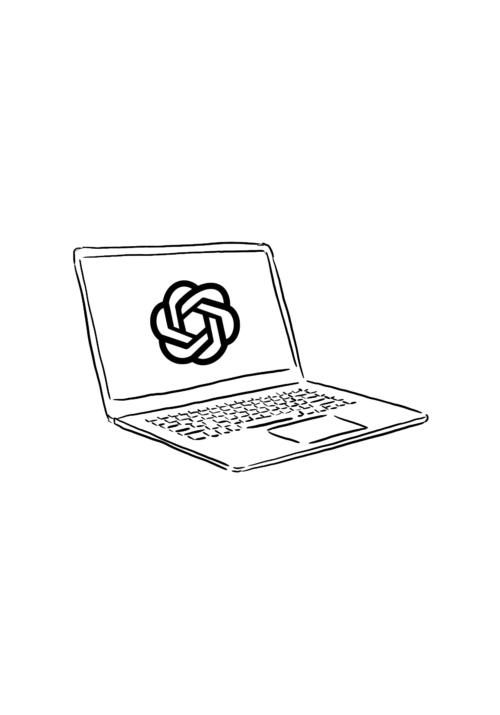How did the media impact public perception during the Cold War?
In less than 20 seconds, Chat GPT was able to give me four ledes to my history essay: propaganda, news coverage, popular culture, and fear and anxiety, as well as thorough, 2-3 sentence explanations for each.
I then inputted, Can you give me some sources? And in return, the algorithm returned five legitimate, scholarly reviewed sources with plausible content.
Launched last November, ChatGPT has transformed the traditional search engine. It broke one million users within one week of its launch and had over thirteen million users in January 2023. The service stands for Generative Pre-trained Transformer, and according to Harvard Professor of Computer Science Boaz Barak, “is not as comprehensive and up-to-date as Google, but it can respond to questions by integrating knowledge from several different sources into one coherent answer.” ChatGPT can answer myriad questions, from debugging code, predicting the weather, and even writing love poetry. However, ChatGPT is not a substitute for the human mind.
When the first search engines—JumpStation, the World Wide Web, and Gopher—were released to the public in the early 90s, their usage, most commonly on college campuses, was restricted to accessing and distributing online information. Despite these search engines’ relative mystery and inaccessibility for anyone without licenses or predetermined hyperlinks, they inaugurated a waterfall of information circulation that dictates much of academia today. Indices died and resurrected into websites. Research no longer required librarian guidance. Hours spent in the library looking for materials evaporated into seconds of typing a few words into Google.
Queue ChatGPT, once again, igniting a research revolution. Though still in its infancy, the search engine has already surpassed benchmarks few companies can boast. Yet like the above mentioned technologies, which have since led to groundbreaking resources such as Google and its satellite-academic aid Google Scholar, ChatGPT’s inherent immediacy will further empower humanity to understand the world faster, deeper, and with alarmingly believable metrics.
Chief Scientist at MosaicML and incoming Assistant Professor of Computer Science at Harvard Jonathan Frankle noted his reservations with the algorithm’s impact on education. “I’m 100% sure that it’s affecting the academic integrity at Harvard and other campuses,” he said. “And I’m 100% sure that it’s only going to become more of a problem.”
In spite of his certainty of the service’s correlation to cheating, Frankle does not fear ChatGPT’s holistic impact on education. Admitting that ChatGPT will require “us to change how we assess learning,” he relates the automated chatbot to the impact of a calculator, insofar that assignments and exams will need to be able to assess a students’ knowledge without the use of these tools.
Many of Frankle’s colleagues agree. Kryzstof Gajos, Computer Science professor and leader of the Intelligent Interactive Systems Group at Harvard, explained that due to the project based nature of his curriculum, “students learn and demonstrate their learning by making and explaining complex decisions.” He mentions that he does “not feel like the large language models (including ChatGPT) impact [his] teaching in any way.” In order to cover written parts of assignments, Gajos endorsed using policies instilled by arXiv, an online archive that includes scientific papers in most STEM fields. Current arXIv policies include requiring authors to report any use of “sophisticated tools, such as instruments and software,” and preventing authors from listing AI language tools as an author in their resources.
In a recent interview with the Harvard Gazette, cognitive psychologist Steven Pinker explains that not only is ChatGPT’s output “easy to unmask because it mashes up quotations and references that don’t exist,” but also that large language models like ChatGPT “might deepen our appreciation of what human understanding does consist of when we contrast it with systems that superficially seem to duplicate it.”
The appearance of ChatGPT in the academic sphere arguably represents the inevitable trajectory of human invention towards something that produces a more accessible and accurate understanding of the world. Just as the internet and calculators allowed us to instantaneously communicate, exchange, and manipulate data, ChatGPT will further accelerate our access to information.
Over time, this rapid technological advancement has and will continue to distinguish human cognitive ability from that of a computer. Descartes argued that reason alone could determine knowledge, and that the very act of thinking proves human existence. Yet ChatGPT proves that even the most advanced technology struggles to answer the most basic questions, ergo ruling it out as an independent thinker. Pinker, in his interview with the Gazette, explained his pleasant surprise when he asked a simple question to the chatbot: does being alive at 9am and 5pm mean being alive at noon? This yielded an incoherent response, “unspecified.” Pinker argued that this proved the technology’s fallibility.
Only time will tell how ChatGPT will impact society on an academic, social, and political level. Yet this is not the first time technology has proved its arguably superhuman abilities—calculating and compiling endless hordes of information. This will also not be the last. The question then becomes how to properly adjust our lives to technology, and utilize it in a way that improves, rather than delegitimizes, the lives of the common good.
Marbella Marlo ’24 (mmarlo@college.harvard.edu) is the Editor-in-Chief of the Harvard Independent.

